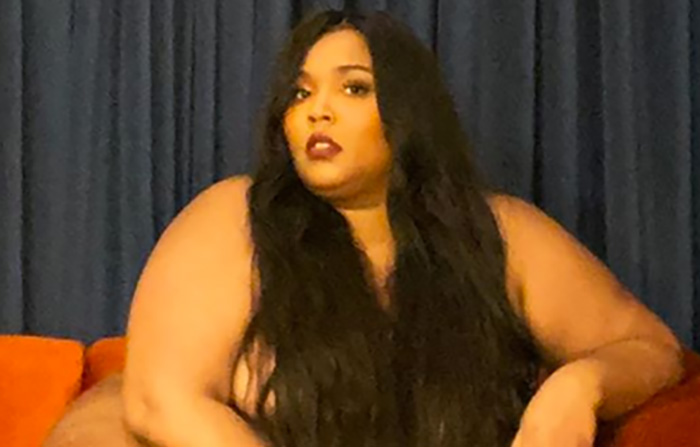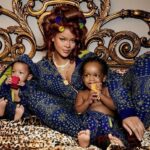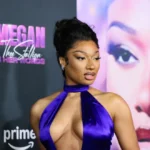PRINT advertising by publishing houses tends to boast about books that are being bold and original, but that can seldom be said of the ads themselves, which generally consist of ho-hum photographs of the book and author, a brief description of the subject matter and laudatory blurbs.
But a new campaign for “Decoded,” the memoir by the hip-hop performer Jay-Z, promises to be a real head-turner. Beginning Monday, reproductions of entire pages of the book will appear unannounced in locales referred to in those pages.
“If in certain pages Jay-Z is talking about something related to Times Square, then those pages might be on billboards in Times Square,” said David Droga, creative chairman Droga5, the New York agency heading the campaign. Mr. Droga declined to reveal locations beforehand (including the veracity of the Times Square example), but did describe the campaign in oblique terms.
While about half of the pages will be displayed in traditional outdoor advertising like billboards, the rest will be offbeat, printed in one instance on the bottom of a hotel swimming pool, in another on the lining of jackets in a store display window, and in another on the felt of pool tables in a pool hall, said Mr. Droga.
Along with New York, the pages will appear in cities including Los Angeles, New Orleans, Miami and London, and will continue to pop up until Nov. 16, when “Decoded” will be published by Spiegel & Grau, an imprint of Random House, with a list price of $35.
The best way to search for the pages will be, appropriately enough, through a search engine. Microsoft will host a Web page, Bing.com/Jay-Z, that will function as an online scavenger hunt. That site, and the Bing logo, will be featured prominently in the outdoor ads.
The scavenger hunt, also scheduled to start Monday, showcases a regular Bing feature, a 3-D map based on photographs (like Google Street View), which enables users to click on a spot on a map, then amble around at street level and look anywhere, as a pedestrian might. Although streetscapes in Bing are based on photographs from before the billboards went up, visitors will see the “Decoded” billboards superimposed in the 3-D map. Players will follow clues to bring them in the general vicinity of pages, while a “proximity meter” on the screen will indicate when they are getting closer.
Players who are the first to discover the pages will be eligible to win a signed copy of the book and the grand prize, a trip to Las Vegas to see Jay-Z and Coldplay in a New Year’s Eve concert.
Pages may end up first being discovered either inside the Bing game or in the real world. Clues about page locations will be given on Bing, as well as by Jay-Z on Facebook, where his official page has more than 4.4 million followers, and through Twitter, where he has more than 256,000.
Players who are the first to discover the page on the Bing map can stake their claim online, while those who discover the pages terrestrially can stake theirs by sending a text message that includes a code printed on the page. (Players can also, of course, search virtually and physically simultaneously by consulting Bing on mobile devices.)
For Bing, which according to comScore accounted for 11.2 percent of searches in September, behind Google, with 66.1 percent, and Yahoo, with 16.7 percent, the promotion could propel many to the site for the first time.
“We want to drive users into this experience,” said Eric Hadley, general manager of marketing for Bing.
In fact, Bing — and not the publisher — is footing the bill for the campaign. Mr. Hadley, who declined to reveal how much Bing was spending, said that “there are some hard costs associated with the project, but I would describe it as mostly in-kind.”
Clear Channel, for instance, a media partner for the promotion, has not waived fees for its billboards, where many pages will appear, but is substantially promoting the book in many other ways without extra payment, including running promotional spots as well as interviews with Jay-Z during regular programming on Clear Channel radio stations, and featuring exclusive videos of the artist on its Web sites.
“From a case-study approach, it’s a unique opportunity where we’re utilizing all of our media touch points to reach consumers and really show the power of our company,” said Evan Harrison, president of digital at Clear Channel Radio.
Some businesses hosting pages, meanwhile, are not charging fees, since they also stand to benefit from the publicity when a local television news crew covers, say, a restaurant that suddenly has pages of a book printed on its plates.
“People were lining up to be part of this, like premium hotel brands and sports stadiums,” Mr. Droga said. “It’s a sincerely mutually beneficial partnership. At the center is Jay-Z’s book, but all the players at the table stand to benefit.”
While publishers naturally are guarded about copyrighted material, this is not the first time that Spiegel & Grau has released some material free in the hope of spurring purchases.
In 2008, the Spiegel & Grau author Suze Orman appeared on “The Oprah Winfrey Show” to promote the book “Women and Money.” Ms. Winfrey informed her viewers that they could download a free electronic version, and during a 33-hour window, more than two million did so. Sales then flourished, with the hardcover edition selling about a million copies, according to Avideh Bashirrad, marketing director at Random House.
The first printing for “Decoded” is 125,000 copies, and Ms. Bashirrad said she was optimistic that they would sell briskly.
“This is in a different stratosphere than what publishers generally can do for books,” Ms. Bashirrad said. “Publishers don’t generally have the budget to do advertising on this scale.” -NY Times

![Da Brat Marries Judy Dupart on 2.22.22 [PHOTOS]](https://hiphopucit.com/wp-content/uploads/2022/02/1645669184565-440x264.jpeg)
![Drake Reveals Photos of His Son Adonis [Photos]](https://hiphopucit.com/wp-content/uploads/2020/03/Drake-and-on-Adonis-HHUCIT.jpg)

![Megan Thee Stallion – “BOA” [NEW VIDEO]](https://hiphopucit.com/wp-content/uploads/2024/05/Megan_Thee_Stallion___BOA__Official_Video__1_12_screenshot-440x264.jpg)
![Doechii Feat. JT – “Alter Ego” [NEW VIDEO]](https://hiphopucit.com/wp-content/uploads/2024/05/Screenshot-of-Doechii-and-JTs-Al-440x264.png)
![Young Thug Feat. Drake Drop – “Oh U Went” [NEW VIDEO]](https://hiphopucit.com/wp-content/uploads/2023/07/Young-Thug-and-Drake-1014x570-1-440x264.png)





![Live Stream: Muhammad Ali’s Funeral [VIDEO]](https://hiphopucit.com/wp-content/uploads/2016/06/ali.jpg)




